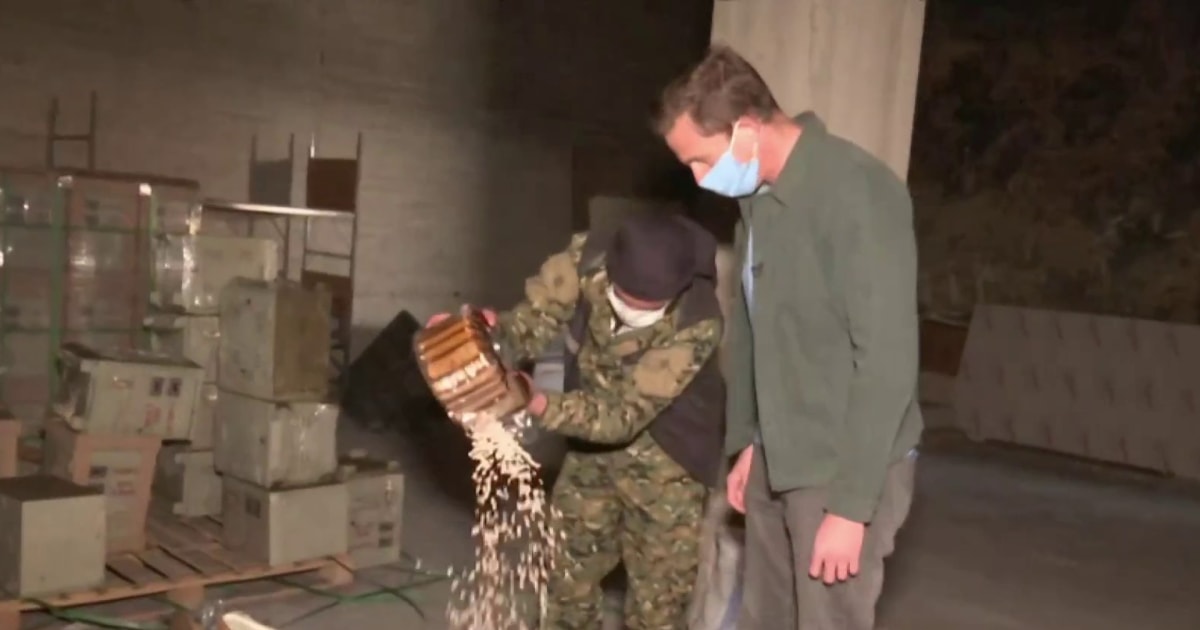Unveiling Syria’s Hidden Drug Laboratories: A Deep Dive into the Underworld
The Syrian conflict, now over a decade long, has not only reshaped the political landscape of the Middle East but has also given rise to a burgeoning and clandestine drug trade. As various factions vie for control in a war-torn nation, drug laboratories have proliferated, transforming Syria into a significant player in the global narcotics market. This investigation delves into the hidden drug laboratories operating within Syria, exposing the complex web of production and distribution that fuels local and international demand. By examining firsthand accounts and expert analyses, we explore the implications of this growing underworld for regional stability and global health.
The Rise of Drug Laboratories in Syria
Since the onset of the Syrian civil war in 2011, the country’s socio-economic fabric has been severely disrupted. In the chaos, several non-state actors, including rebel groups and criminal organizations, have turned to drug production as a means of financing their activities. Reports indicate that the opium poppy and cannabis cultivation have surged, particularly in regions outside the control of the Syrian government.
Types of Drugs Produced
- Opium: The cultivation of opium poppies has increased significantly, particularly in the provinces of Idlib and Deir ez-Zor. This has positioned Syria as a major supplier of opiates in the region.
- Cannabis: Cannabis production has become prevalent, with vast fields dedicated to the crop, primarily in the northwestern parts of Syria.
- Synthetic Drugs: The production of synthetic drugs, including methamphetamine and Captagon, has also escalated. Captagon, a popular amphetamine in the Middle East, is particularly concerning due to its widespread use among combatants and the general populace.
Mechanisms of Production and Distribution
The operation of these drug laboratories is both sophisticated and clandestine. Many labs are located in remote areas, often hidden in plain sight within abandoned buildings or under the guise of legitimate businesses. The production processes vary widely, from small-scale operations run by local gangs to larger facilities managed by organized crime syndicates.
Distribution networks are equally complex, involving local, regional, and international channels. Drugs produced in Syria are often trafficked through neighboring countries, including Lebanon and Turkey, and then onto markets in Europe, the Gulf States, and beyond. The sheer volume of production and the demand for these substances make Syria a key player in the international drug trade.
Implications for Regional Stability
The burgeoning drug trade in Syria has far-reaching implications for regional stability. As drug money flows, it fuels ongoing conflicts and undermines governance in an already fragile state. Rebel factions and criminal organizations often finance their operations through drug trafficking, creating a vicious cycle of violence and instability.
Impact on Local Communities
Local communities are profoundly affected by the drug trade. The influx of narcotics leads to heightened addiction rates, straining public health services that are already overwhelmed due to the war. Families are torn apart as addiction takes hold, and the social fabric of communities deteriorates. Furthermore, the presence of drug laboratories attracts violence, as rival factions vie for control over lucrative production sites.
International Concerns
The international community is increasingly concerned about the implications of Syria’s drug trade. The export of narcotics fuels not only local addiction crises but also poses a risk to global health. Countries in the European Union and the Gulf States have reported rising incidences of drug-related issues linked to Syrian-produced substances. This has led to calls for intervention and greater oversight in the region.
Efforts to Combat the Drug Trade
Efforts to combat the drug trade in Syria are complicated by the ongoing conflict and the lack of a unified government. Various actors, including the Syrian government, Russian forces, and Kurdish groups, have launched operations to dismantle drug laboratories. However, these efforts are often hampered by the chaotic security environment and the corruption that permeates many institutions.
International Cooperation
International cooperation is essential in addressing the drug trade’s multifaceted challenges. Organizations such as the United Nations Office on Drugs and Crime (UNODC) have called for a coordinated response to tackle the underlying issues driving drug production in Syria. This includes addressing poverty, lack of education, and the absence of lawful economic opportunities.
Community-Based Approaches
Community-based approaches focusing on rehabilitation and economic development are crucial to reducing the demand for illicit drugs. Programs aimed at educating youth about the dangers of drug use and providing vocational training can help mitigate the allure of the drug trade.
The Road Ahead
The future of Syria’s drug trade remains uncertain. As the conflict continues, the potential for drug production to become entrenched in the economy poses significant challenges. Without a comprehensive approach that addresses both the supply and demand sides of the drug trade, the situation is unlikely to improve.
Potential Solutions
- Strengthening Governance: Establishing a stable and effective governance structure is essential for combating drug production and trafficking.
- International Support: Increased international assistance, both in terms of law enforcement and economic development, is critical.
- Public Health Initiatives: Investing in public health initiatives that target drug addiction can help communities recover from the impact of the drug trade.
Conclusion
The hidden drug laboratories of Syria represent a significant challenge not only for the nation itself but also for the broader international community. As the intertwining issues of conflict, addiction, and organized crime continue to evolve, it is imperative to adopt a multifaceted approach that addresses the root causes of drug production and the consequences of addiction. Only through concerted efforts can the cycle of violence and instability be broken, paving the way for a healthier and more stable future for Syria and the surrounding region.
See more CNN Headline


